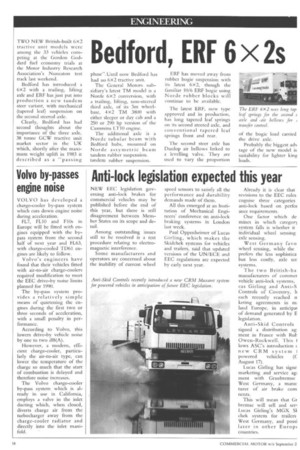Volvo by-passes engine noise
Page 20

If you've noticed an error in this article please click here to report it so we can fix it.
VOLVO has developed a charge-cooler by-pass system which cuts down engine noise during acceleration.
FL7, FL10 and FlOs in Europe will be fitted with engines equipped with the bypass system from the second half of next year and FL63, with charge-cooled TD61 engines are likely to follow.
Volvo's engineers have found that their vehicles fitted with air-to-air charge-coolers required modification to meet the EEC drive-by noise limits planned for 1990.
The by-pass system provides a relatively simple means of quietening the engines during the first two or three seconds of acceleration, with a small penalty in performance.
According to Volvo, this lowers drive-by vehicle noise by one to two dB(A).
However, a modern, efficient charge-cooler, particularly the air-to-air type, can lower the temperature of the charge so much that the start of combustion is delayed and therefore noise increases.
The Volvo charge-cooler by-pass system which is already in use in California, employs a valve in the inlet ducting which, when closed, diverts charge air from the turbocharger away from the charge-cooler radiator and directly into the inlet manifold.




































































































